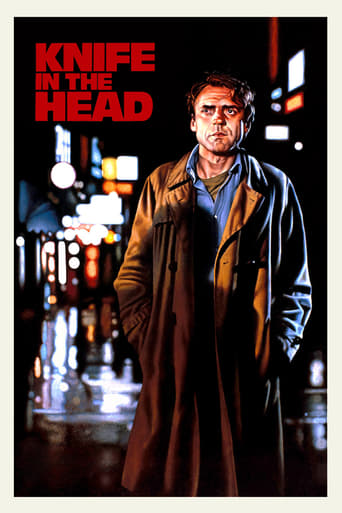Horst in Translation ([email protected])
"Messer im Kopf" or "Knife in the Head" (there's actually much more than a knife in the head here) is a West German 105-minute film from 1978, so two more years and this one will have its 40th anniversary. The director and one of the writers is Reinhard Hauff and it is one of his most known works. The cast includes a handful somewhat famous names, such as lead actor Bruno Ganz. His character's wife is played by Angela Winkler who probably was a lot more known back then than she is today. Same can be said about Udo Samel and Hans Christian Blech. And this was a breakthrough film for the young Heinz Hoenig, who scored a German Film Award nomination for his work here, just like Blech. I am not sure I would agree with these nominations though. In my opinion, the heart and soul of the film is Ganz' performance and he elevates the material here by a lot. Strangely enough, he was not nominated, but the film itself was awarded as one of the best German Films of the year. The grand prize went to the Oscar-winning "Tin Drum" though, another very overrated film that is actually similar to this one telling individual fates and stories in the context of politics playing a major role. But back to this one here. I did enjoy the first half and it was tense and nicely done in terms of suspense. But the way, things unfolded after the 50-minute mark was not to my liking at all and I cannot say I was satisfied by the solution and how it all turns out towards the end'. That's why the writing, which is the most important aspect of a film, did not satisfy me here. I have to give it a thumbs-down. Quite a shame after it started so well. Not recommended.


